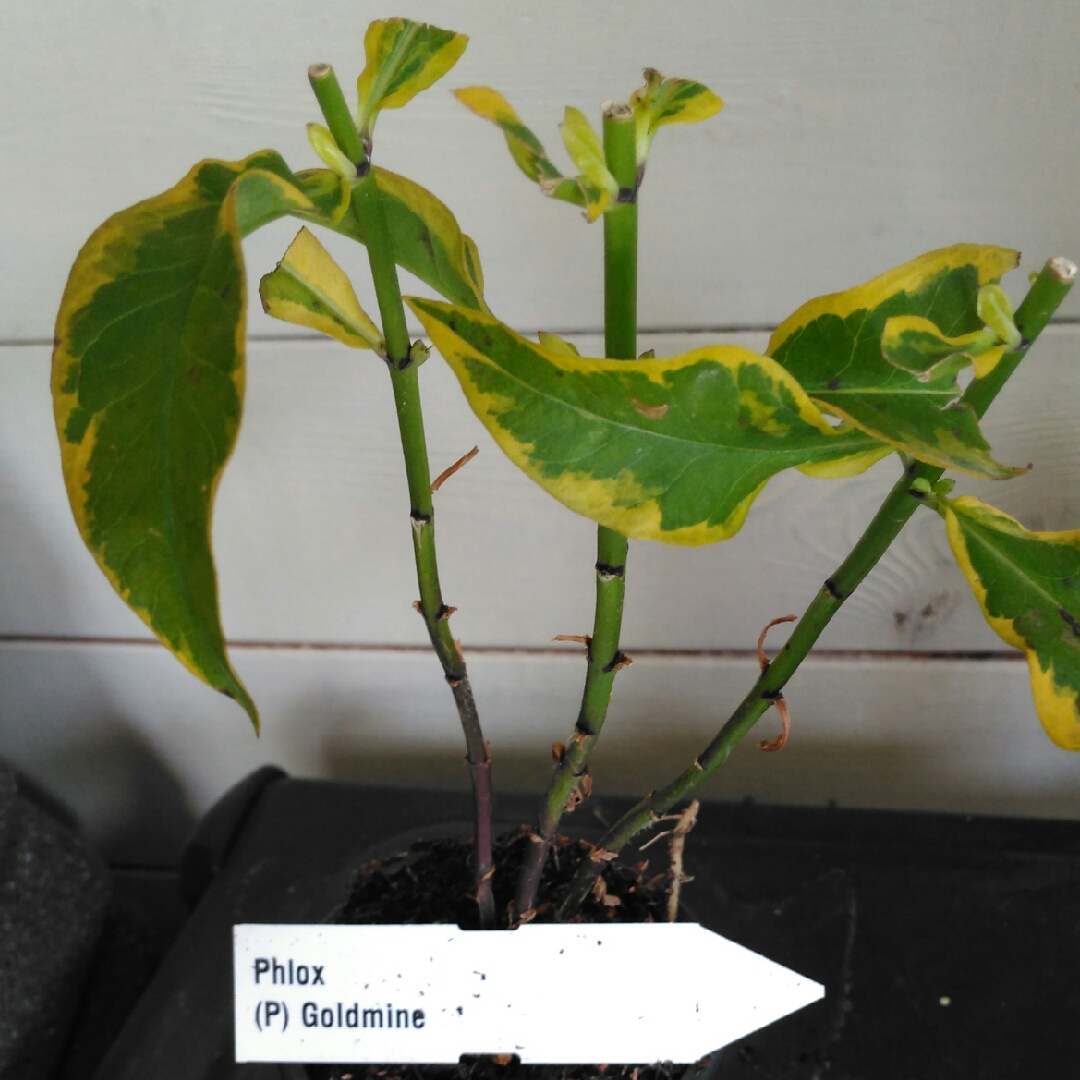
Phlox paniculata 'Goldmine'
Phlox 'Goldmine'
Phlox paniculata is an erect perennial growing with alternate leaves on slender green stems. The flowers, often fragrant, can be white, pink, red, or purple, and appear from summer through autumn. 'Goldmine' produces an abundance of showy, fragrant pink-purple flowers with a red eye during Summer.
-
Full sun
-
Occasional watering
-
Full Frost Hardy: 5F (-15°C)
-
Moist and free draining
Common name
Phlox 'Goldmine'
Latin name
Phlox paniculata 'Goldmine'
type
Herbacious Annual or perennial
family
Polemoniaceae
ph
5.6 - 7.8 Acid - Neutral
Plant & bloom calendar
-
Best time to plant
-
When the plant will bloom
full grown dimensions
 0.50 M
1.00 M
0.50 M
1.00 M
Phlox paniculata 'Goldmine'
Phlox paniculata is an erect perennial growing with alternate leaves on slender green stems. The flowers, often fragrant, can be white, pink, red, or purple, and appear from summer through autumn. 'Goldmine' produces an abundance of showy, fragrant pink-purple flowers with a red eye during Summer.
Plant container plants
From Early Spring TO Mid Spring
Plant container plants in a sunny position.
Propagation by Division
From Mid Autumn TO Mid Autumn
Using a fork dig up the plant, try to keep the root ball as complete as possible. Split the root ball at the centre with a sharp knife or a spade. Replant the plants to the same depth as the original and keep well watered until established.
Flowering
From Early Summer TO Late Summer
Phlox have a long flowering season through Summer. Depending on the variety, they flower from early Summer right through to late Summer
Propagation by Root cutting
From Early Spring TO Early Spring
Carefully lift the plant out of the ground, do not to damage its roots. Rinse the roots in water to remove all soil. With a sharp knife, take off 5cm lengths of pencil thin roots. Fill pots with compost to which grit has been added, lay the cuttings, spaced out, on top. Cover with a thin layer of compost. Water well, label pots and place in a in a cold frame or somewhere cool indoors. Replant the parent plant.










